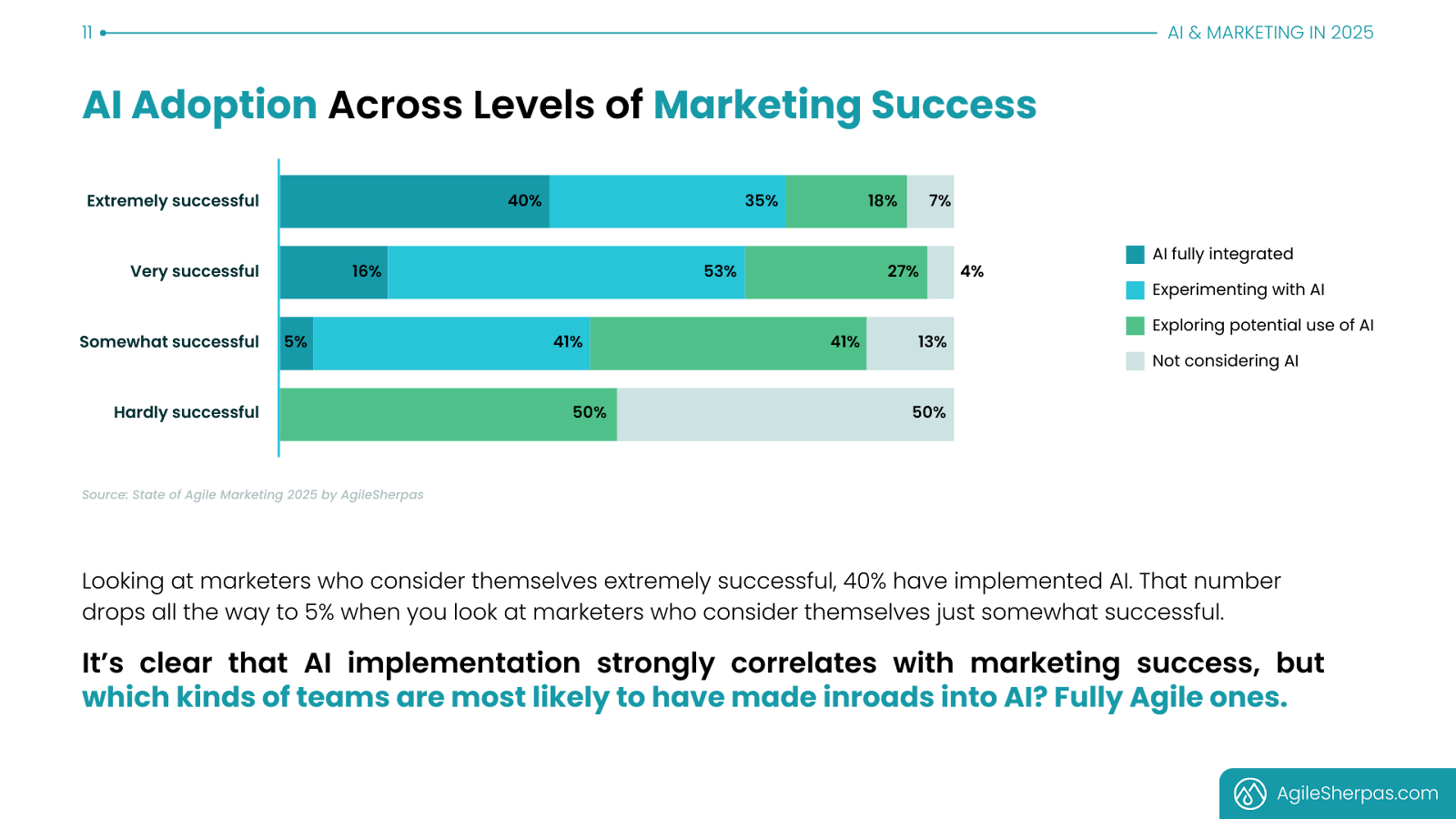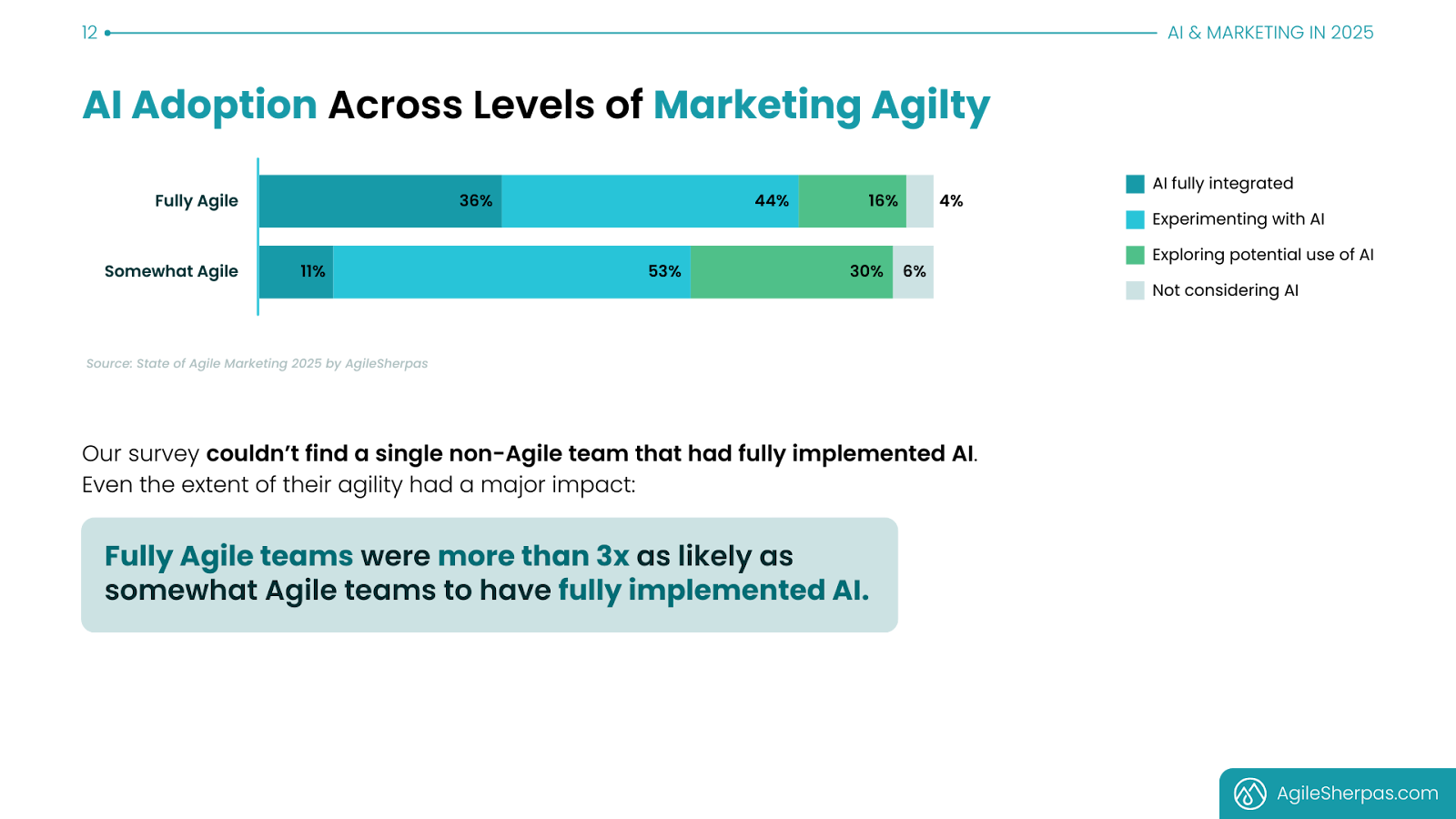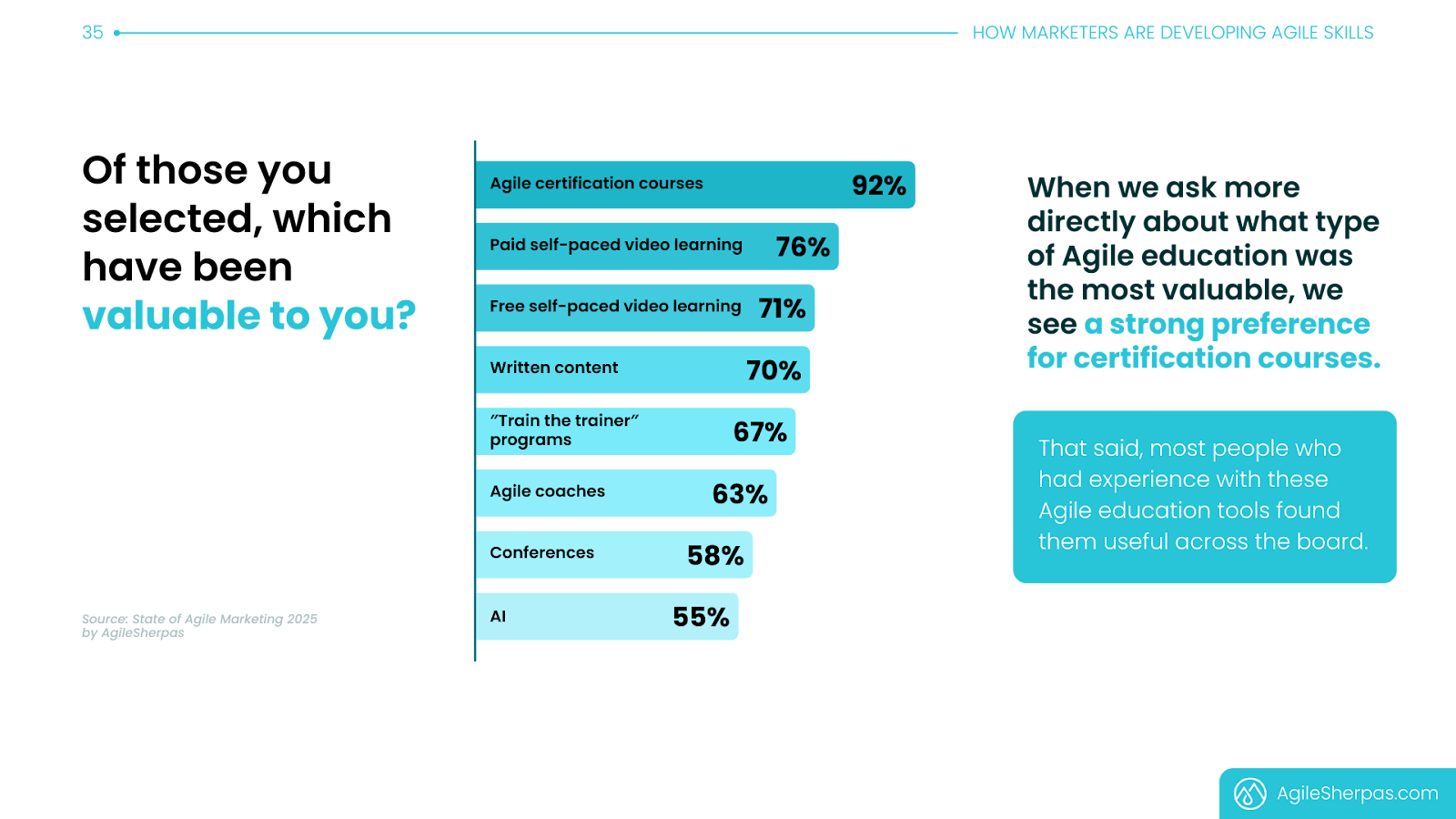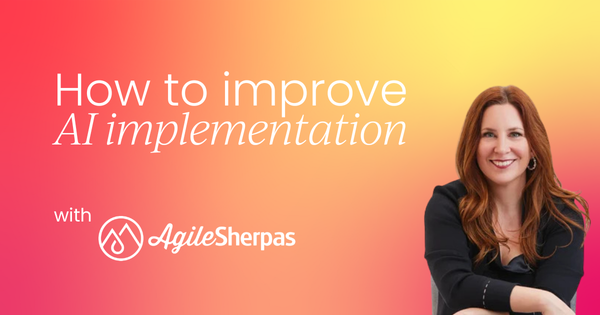For the vast majority of CMOs, the pressure to get their marketing teams to integrate AI into their processes is immense.
It’s no wonder the latest State of Agile Marketing (SOAM) Report from AgileSherpas found that 93% of marketers were at least considering AI integration.
The writing is on the wall: AI is a vital tool for remaining competitive.
However, despite all that pressure, only 17% have managed to successfully implement AI fully. That’s a massive gap that points to just how difficult AI is for marketers to get right.
From senior leaders down to everyday marketers, people are struggling to harness the capabilities of marketing AI and translate it into real ROI.
Fortunately, this report offers data-driven insights into what types of marketers are far ahead of their competitors on AI and what’s driving their success.
The immense impact of AI integration in marketing
First, it’s worth looking a bit closer at the impact full AI integration has on marketing. Here, the SOAM data told a clear story.

The more successful marketers were, the more likely they were to have fully integrated AI into their processes. In fact, those not considering AI at all were by far the most likely to be “hardly successful.”
It’s not difficult to understand why this might be the case. AI can automate processes, enhance productivity, and enable single marketers to accomplish far more than before.
But getting to that point takes time, effort, and resources. Marketers and their teams need to experiment, iterate, and take the time to figure out what tools and use cases really move the needle for them.
One type of marketer is ahead on AI
If mentions of experimentation and iteration brought agile to mind, that’s no coincidence.
The SOAM report found that fully agile marketers were far more likely to successfully implement AI compared to their less or non-agile peers.
In fact, despite surveying hundreds of marketers, the survey was unable to find a single non-agile marketer who had found AI success.

Beyond the fact that agility aids in AI implementation, the relationship between the two is more symbiotic.
Two thirds of fully agile teams reported that AI significantly enhanced their agility.
Overall then, if fully agile marketers alone are more than 3x as likely to fully integrate AI into their work compared to somewhat agile marketers, what explains the difference?
What makes agile marketers adept at AI?
Autonomy
Agile marketers tend to have far more autonomy compared to their non-agile counterparts. The survey found that 82% of extremely successful marketers reported having such autonomy.
When AI implementation comes in the form of a mandate telling teams what tools to use and how, outcomes suffer.
With so many AI tools and use cases out there, it’s essential that teams have the opportunity to explore for themselves.
Experimentation
It’s extremely unlikely even the best marketing team is going to nail AI implementation on the first try. Experimentation and iteration are crucial for confirming what works and adapting as AI technology evolves.
But the reality is that experimentation doesn’t come easily to all marketers.
Agile marketers, by contrast, have a culture built around experimentation, iteration, and continuous improvement. Testing AI comes easily because they're already used to testing new marketing tools.
Focus
A common challenge of AI implementation in marketing is simply knowing where to start. There are new tools being released daily and figuring out what to test can feel like trying to drink from a fire hose.
But agile marketers excel at prioritization, with 72% of extremely successful marketers reporting they focus on a few high-value activities at a time.
That practice of identifying what’s worth testing and what work is going to deliver the most value to stakeholders is immensely helpful when sorting through endless AI options.
Trying to test and experiment with too many tools and use cases at once makes it difficult to make reliable data-driven decisions about what works and what doesn’t.
What CMOs can do
The data here tells a clear story: agile ways of working make marketers far better at implementing AI. But how can CMOs act on that information?
The SOAM report also surveyed marketers about agile education and training methods to understand which were most effective at developing those crucial AI-related skills.

Certification programs come out as the most valuable, but also carry higher costs. Self-paced video learning is generally more flexible and affordable, and both free and paid options are rated highly by marketers.
Overall though, all the educational tools listed, including AI, were generally seen as valuable. So CMOs have plenty of options for targeted training of key leaders or mass training of entire teams or departments.
However, CMOs choose to approach agile education, it’s clear that effective AI implementation requires thinking about those basic skills first.
Starting with AI misses the fact that basic skills like experimentation are essential foundations for long-term success.






.png)









 Follow us on LinkedIn
Follow us on LinkedIn




